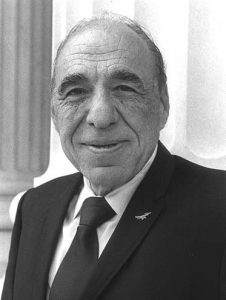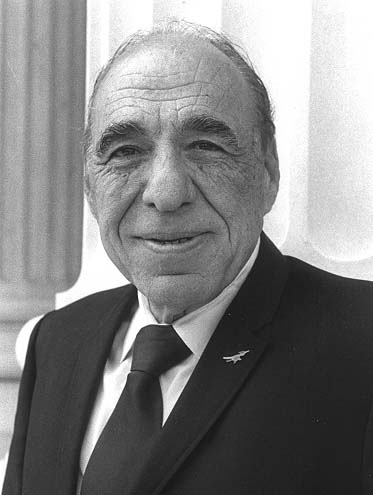EYES RIGHT!: Reflections on the November 8th Elections

Rep. Henry Gonzalez. Photo in public domain
The 103rd Congress adjourned Dec. 1 without having enacted comprehensive housing and community development legislation. Although the House overwhelmingly and on a bipartisan basis passed H.R. 3838, the Housing and Community Development Act of 1994, the Senate failed to enact similar legislation in the rush to adjournment before the November elections.
In response to the November elections, the news of late predicts or proposes the demise of the Department of Housing and Urban Development and the retreat of the federal government from housing programs in the name of budget savings and government streamlining. I, however, remain convinced that the federal government must maintain its commitment to our nation’s most vulnerable citizens and communities. I will continue to make that fight while taking a long hard look at the clear need for reform. The election did not magically improve the quality of life and the housing conditions for millions of Americans. I believe that the next Congress must continue to address the real housing and community development needs that went untended during the 1980s. The Congress began the long journey back in 1990 with the passage of the Cranston-Gonzalez Affordable Housing Act and again with the Housing and Community Development Act of 1992. If the senate had passed H.R. 3838, numerous additional reforms would already be underway – reforms with which everyone agrees. We must not now retreat. I am hopeful that my colleagues on the banking committee share my view.
The next Congress faces continued increases in housing costs, loss of affordable housing, and deterioration and disintegration of many of our nation’s cities and towns. It appears that Congress will address these statistics with renewed efforts to impose harmful budget cuts and perhaps draconian restructuring of housing assistance programs. My resolve, however, remains firm to enact responsible housing legislation such as that passed by the House of Representatives in the 103rd Congress.
The House-passed H.R. 3838 proposed critically needed reforms to many of the core housing and community development programs, so that HUD, FmHA and program beneficiaries can implement them with greater ease and flexibility. It also provided for a number of initiatives of both committee members and the Administration that reflect a new spirit of activism and creativity, which reinvigorates the federal role in housing and community development programs.
These programs and initiatives would provide housing and other assistance to this nation’s most vulnerable citizens and communities: low- and moderate- income families and the homeless. The Committee was guided by the deficit reduction targets set by the Congress in the fall of 1993. Committee members sought a bipartisan consensus on total program funding to be authorized in each of the two fiscal years.
Of particular significance were rent reform and reforms to the one-for-one replacement policy affecting public housing residents. Under rent reform, residents of public housing would be encouraged to work by being permitted to retain more of their earned income, rather than lose it to rent. The one-for-one replacement reforms, like those under property disposition reform, would increase a public housing authority’s flexibility in replacing dilapidated public housing and would establish conditions for replacement that were more congruous with the housing market.
Further, the bill would consolidate homeless programs under the McKinney Act into one unified housing and services program. The program would be administered by the states and cities, with significant input by nonprofit agencies and service providers. It also would be designed to meet the needs of particular communities as defined by the communities themselves, rather than by the Federal government.
H.R. 3838 would continue the insurance programs of the Federal Housing Administration, with the previous reforms in place, and revise the National Homeownership Fund. Both these programs would provide homeownership assistance, in many instances for first-time home buyers. The bill placed a renewed emphasis on providing single-family homeownership and revitalizing the FHA as a vibrant and smooth-running government entity.
These reforms and initiatives should be a major focus of the 104th Congress, providing the critical federal leadership and assistance demanded by our nation’s citizens and communities in urban and rural America. It is my hope that the new Congress will build on these carefully considered changes – rather than embarking on a radical new set of untested experiments in budget cuts that will only translate into more homelessness and bitter despair for the working poor and the impoverished people of America.




Comments